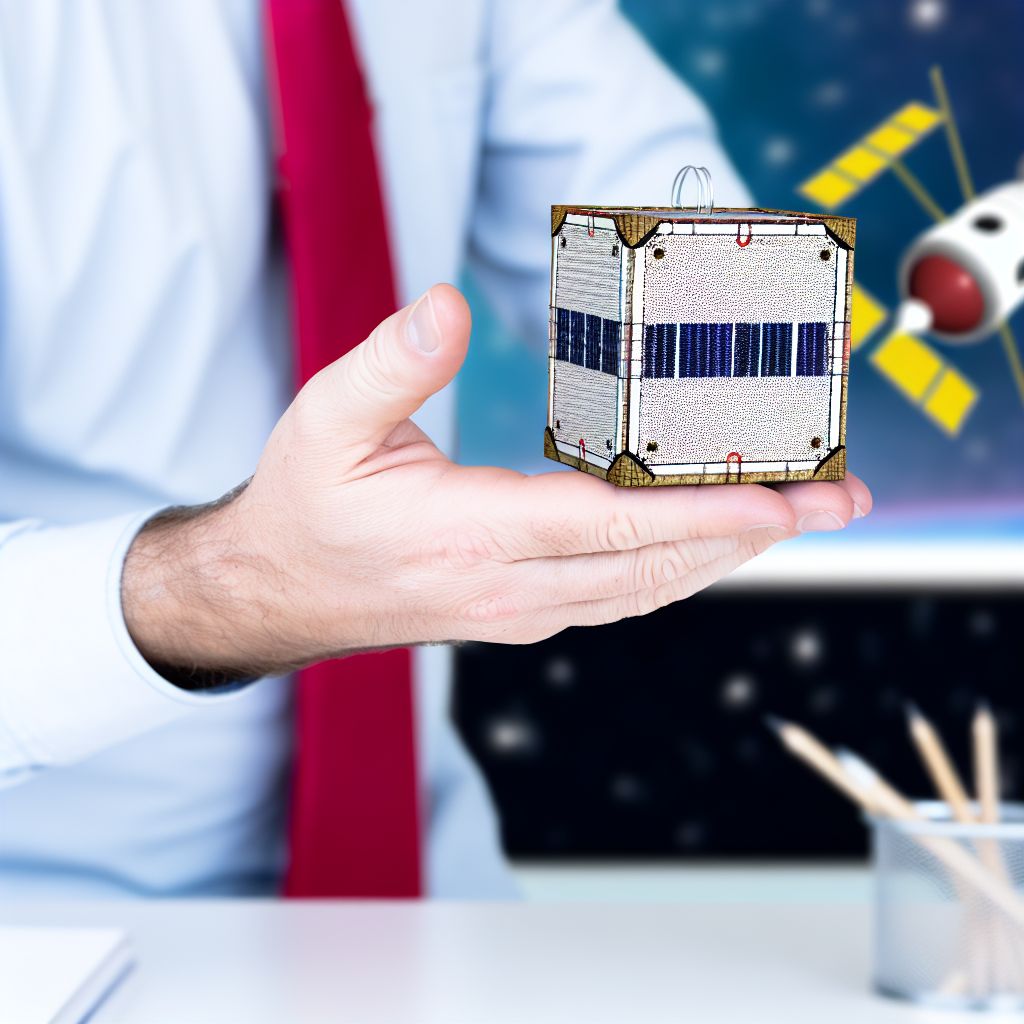Deutsch: PocketQube / Español: PocketQube / Português: PocketQube / Français: PocketQube / Italiano: PocketQube
PocketQube in the Space industry context refers to a class of ultra-small satellites with a standardized size of one or more units, each unit being a cube measuring 5 centimeters (2 inches) along each edge. Introduced as an even smaller alternative to CubeSats, PocketQubes aim to further reduce the cost and barriers to entry for satellite Development and launch, making space Access more feasible for educational institutions, small businesses, and hobbyists. Despite their diminutive size, PocketQubes can carry out a variety of missions, including technological demonstrations, educational projects, and scientific research.
Description

The PocketQube Standard was developed to simplify and standardize the Design, construction, and deployment of small satellites. By offering a smaller and cheaper platform for space missions, PocketQubes enable innovators to test new technologies, conduct experiments, and gain Experience in satellite operations without the need for significant resources or Infrastructure. PocketQubes can be launched individually or in groups, often as secondary payloads on larger Launch Vehicles, utilizing deployers that safely release them into Orbit.
Application Areas
PocketQubes are used across several areas within the space industry, notably in:
- Technology Demonstration: Testing new space technologies and components in a real space Environment.
- Educational Projects: Providing hands-on experience in satellite design, build, and operation for students and researchers.
- Scientific Research: Conducting space and Earth observation experiments with compact instruments.
Well-Known Examples
- Eagle-1 (a.k.a. $50SAT): One of the first PocketQubes launched, demonstrating that meaningful scientific research and amateur radio operations could be conducted with a satellite small enough to fit in a pocket.
- Alba Orbital: A company specializing in PocketQube technology, providing platforms and launch opportunities for PocketQube satellites.
Treatment and Risks
Deploying PocketQubes involves addressing specific considerations and challenges:
- Limited Space: The small size constrains the payload and onboard systems, requiring innovative miniaturization and integration solutions.
- Power and Communication: Designing efficient power and communication systems within the limited available space and power budget.
- Launch Opportunities: Securing affordable and timely launch opportunities for these tiny satellites can be challenging, although this is mitigated by their ability to piggyback on larger payloads.
Similar Terms or Synonyms
- Miniature satellites
- Ultra-small satellites
- Pico-satellites (PocketQubes are in the pico-satellite category by Mass)
Summary
PocketQubes represent a revolutionary step in the democratization of space, offering an affordable and accessible platform for satellite missions. Despite their small size, they hold the potential to significantly impact technology development, education, and scientific research in the space sector, fostering innovation and expanding the capabilities of space exploration.
--
Related Articles to the term 'PocketQube' | |
| 'ASTRA' | ■■■■■■■■ |
| ASTRA is a space launch company that specializes in the development and launch of small satellites into . . . Read More | |
| 'Firefly' | ■■■■■■■■ |
| Firefly in the space industry refers to Firefly Aerospace, an American aerospace company specializing . . . Read More | |
| 'Smallsat' | ■■■■■■■ |
| Smallsat: A small satellite, miniaturized satellite, or smallsat is a satellite of low mass and size, . . . Read More | |
| 'GOSA' | ■■■■■■ |
| The German Offshore Spaceport Alliance (GOSA) is a consortium of companies, research institutions, and . . . Read More | |
| 'ATHENA' | ■■■■■■ |
| ATHENA: Athena in the space industry context typically refers to a Satellite Communications system or . . . Read More | |
| 'Piggyback' | ■■■■■■ |
| Piggyback refers to the practice of launching a secondary payload alongside a primary payload on a single . . . Read More | |
| 'Access to facilities' | ■■■■■■ |
| Access to Facilities refers to the availability and ability to use various infrastructure and resources . . . Read More | |
| 'Conglomerate' | ■■■■■■ |
| Conglomerate: A conglomerate in the space industry refers to a large corporation formed by the combination . . . Read More | |
| 'Nanosatellite' | ■■■■■ |
| Nanosatellite: A nanosatellite (nano satellite, nanosat) is a small satellite with a weight between 1 . . . Read More | |
| 'Cubesat' | ■■■■■ |
| Cubesat: A CubeSat is a type of miniaturized satellite that is used for a variety of purposes, including . . . Read More | |
